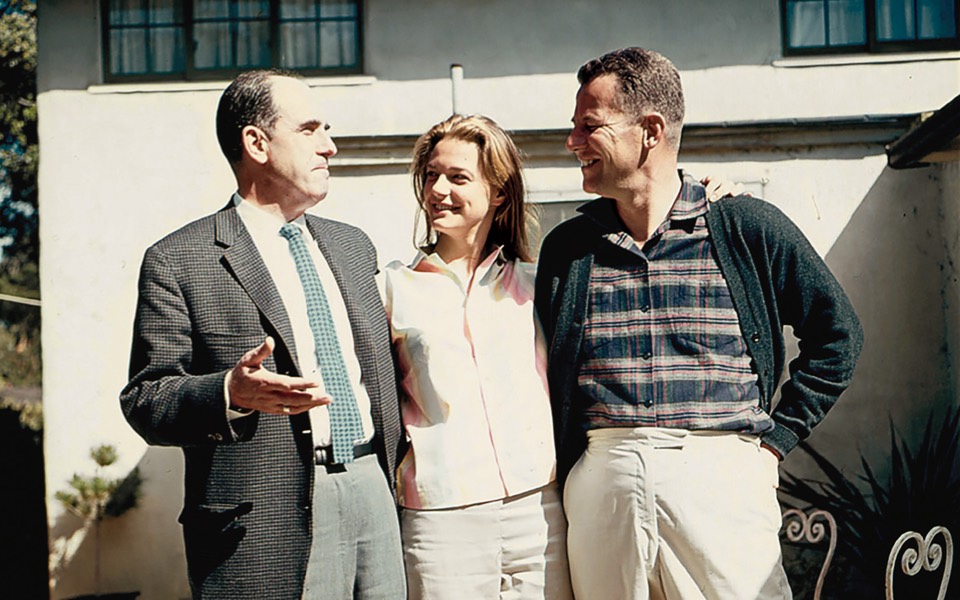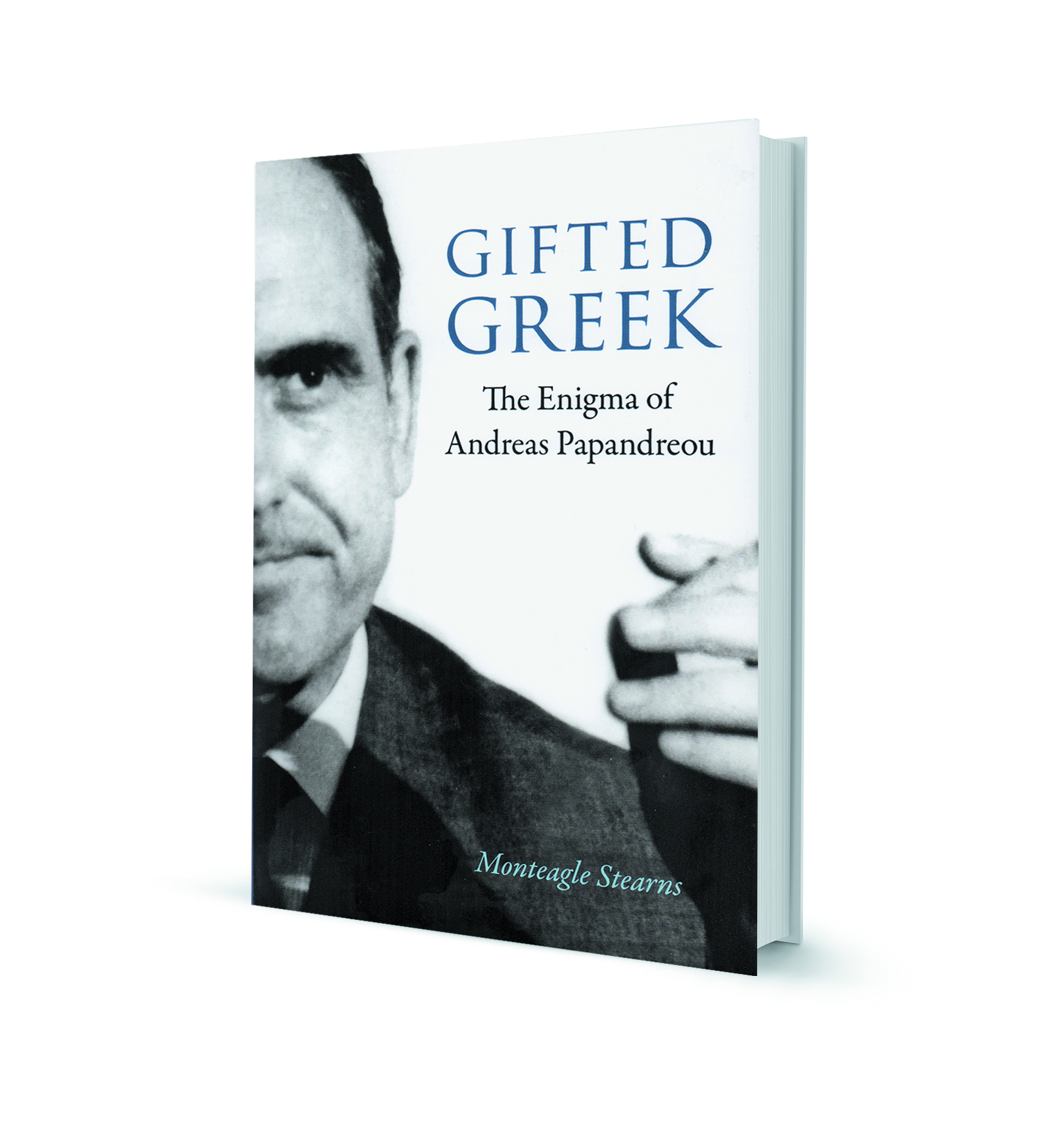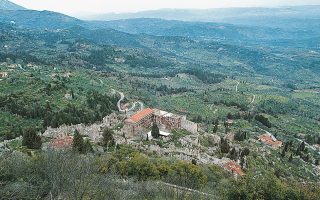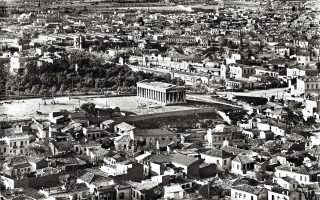‘Monty, Greece is no place for me’
US diplomat Monteagle Stearns’ character study on former PM and founder of socialist PASOK, ‘Gifted Greek: The Enigma of Andreas Papandreou,’ coming out in translation

The chair at the Department of Economics of the University of California, Berkeley, Andreas Papandreou, his wife Margaret and their four children set sail from Piraeus in August 1960 on the Queen Frederica to return to the United States. They had spent a year in Athens, where he studied the Greek economy and established the Center of Planning and Economic Research (KEPE). Just before the liner set off, Georgios Papandreou took a moment to entreat his son to return to Greece. He received no answer other than a promise that the family would be back for their summer holidays in 1961. “The Old Man,” as he was fondly known, waved a handkerchief as the ship sailed away.
Andreas was clearly troubled and as soon as the Queen Frederica stopped in Naples, he disembarked to make a call: “I have to telephone Father to tell him the news,” he said, announcing his plans to return earlier. The Papandreou family did indeed return in January 1961, which is also when Margaret realized that Andreas’ quick call was not to his father, but to his young teaching assistant, the daughter of a Greek MP. “Andreas was not a philanderer. He was a serial monogamist,” Margaret would tell Monteagle (Monty) Stearns (1924-2016) and his wife Toni several years later.
Character study
 This is but one of many little-known anecdotes presented in the book “Gifted Greek: The Enigma of Andreas Papandreou” by the American diplomat, which was published in English earlier this year under the supervision of Toni Stearns and is now being brought out in Greek from Estia.
This is but one of many little-known anecdotes presented in the book “Gifted Greek: The Enigma of Andreas Papandreou” by the American diplomat, which was published in English earlier this year under the supervision of Toni Stearns and is now being brought out in Greek from Estia.
It is chiefly a character study on the founder of the socialist PASOK party. With the perfect amount of objectivity as an American, the incisive eye of a seasoned diplomat and the sensitivity of a friend, Stearns was uniquely placed to attempt a study on the enigmatic Andreas Papandreou (1919-96). Among the book’s many attributes is also a wealth of information on the former prime minister’s life, starting with his formative years at Athens College in the 1930s. Who knew that in 1934, 15-year-old Andreas called for a Marxist revolution in an article of the second issue of “Xekinima,” a magazine he published at school with a group of classmates? The article caused a scandal that was reported in Estia and Vradyni newspapers. Ten years later, 25-year-old Andreas couldn’t care less about politics, but immersed himself in mathematical models that would help him reconcile economic theory with practice.
The Stearns traveled to Greece for the first time in 1958, when Monty was appointed to the US Embassy in Athens. Andreas and Margaret came in the summer of 1959, when he spent his sabbatical studying the Greek economy at the invitation of Konstantinos Karamanlis. The two couples met at the home of MP Yiannis Boutos. “Margaret’s slightly guarded manner seemed to imply that she suspended friendship until she could judge the stranger she was talking to… Andreas, on the other hand, seemed completely unguarded. He had a warm smile and a manner which implied, or which people inferred, that you were exactly the person he had hoped to meet that evening,” writes Stearns.
The Papandreous and the Stearns were also neighbors, living on the same street in the leafy Athens suburb of Palaio Psychico.
In 1959, Andreas and Margaret still called each other by their American nicknames, Andy and Maggie, and Andreas was quickly disappointed by what he saw of the Greek public administration. “Monty, Greece is no place for me,” he confided to his friend, wondering why anyone would want to govern such a country.
The book also sheds light on many small and private moments of the Papandreous’ lives, such as the fact that Andreas got a dog but did not want his father to find out. “Can you keep the dog for a day? Father will visit us,” he asked his friends on one occasion, knowing that Georgios would simply not understand keeping a dog as a house pet. In another incident, the Old Man got angry when he saw Andreas washing his car, saying that this was not something the son of a prime minister was allowed to be seen doing in Greece.
Georgios was desperate for Andreas to move back to Greece for good, saying that politics was in his son’s blood, “his destiny.” He blamed his American daughter-in-law for Andreas’ reluctance to come home and even went so far as to ask the Stearns to convince him to get a divorce.
One night at dinner, Andreas and Monty shared a joke in English: “The problem with Greece is that it has too many politicians and not enough economists,” they joked. Georgios demanded to know what they were laughing about, but was told it was untranslatable. Eventually though, Georgios had his way and Andreas and Margaret moved back to Greece in late 1962, just as Monty and Toni returned to Washington.
After 1981
Monty and Andreas met again for the first time in 1981, after Papandreou was elected prime minister of Greece and Stearns was appointed ambassador in Athens.
“I stepped into the labyrinthine corridors [of the Parliament] and I was escorted by a solitary guard up to the prime minister’s office suite… My first thought was that Andreas was going to launch into a litany of grievances against the United States… [On the contrary] Andreas made his way towards me, with an outstretched hand and a wry smile on his face… We had known each other for a long time [he said] putting an arm over my shoulder, and he was confident that relations between our two countries would stay on an even keel,” Stearns recounts in the book. Once the journalists left, the two friends sat in a pair of leather chairs in front of the prime minister’s desk. “Tell me, Monty. Twenty years ago in your wildest dreams, would you ever have thought that I would be sitting in this chair and you in that one?” Papandreou asked his friend.
Stearns, who would spend another stint in Athens after the end of the 1967-74 dictatorship, tactfully managed the delicate balance of Greek-American relations at the time. “I reiterated my belief that Papandreou neither intended nor could afford to leave NATO or the EU, but needed to assert that if Greece were to remain in the Western camp, it would do so of its own choosing, in its own way,” he writes of what he communicated to Washington.
Two US secretaries of state, Alexander Haig and George Shultz, were surprised by Papandreou. When the former visited Athens, in fact, the prime minister instructed his team to close their briefing books, “because Secretary Haig knows the issues better than anyone else in this meeting.” The latter (who died recently at the age of 100) had been prepared to chide Papandreou before a NATO summit in Brussels, but was instead treated to an analysis of the historical rivalry between two American football teams in California.
Stearns writes that Papandreou implemented a policy that was disastrous to the Greek economy but greatly improved the quality of life for Greeks. The pair met for the last time in 1992 at Papandreou’s home in the northern Athens suburb of Ekali, where the Greek politician mentioned his conservative rival, Konstantinos Mitsotakis: “Monty, Mitsotakis is completely without values. He has no ideology.” He also apologized that his wife at the time, Dimitra Liani, would not be joining them as she was otherwise engaged. “I sensed that Andreas preferred not to introduce his third wife to friends who had known his second,” admits the American diplomat who, after 30 years, may have understood his Greek friend better than many others.





